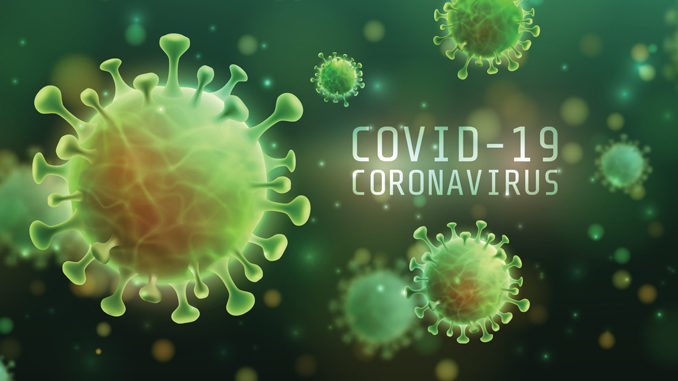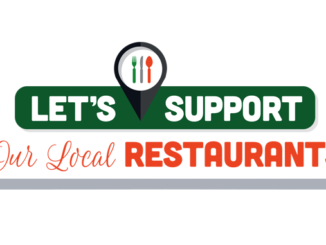
It affects them in more ways than one may think
Every year I visit Cornwall’s journalism class and answer questions the students prepare in advance. As an in-class assignment, the 12th-graders are asked to write a headline and an introductory paragraph based on a press release from the Police Department.
This year my visit led to a homework assignment. The students had to explain how the Coronavirus has affected their lives or the lives of people around them.
At our request, their teacher (Mrs. Chyla) picked the two essays she thought you would enjoy the most:
Talk about virus turned into reality
By Christina Alfieri
Every morning I wake up and come out to the news on my television in my living room. Everyday it feels like I see more and more things I just can’t wrap my head around. The first time I heard of the Coronavirus it was on social media and was just a joke.
For a while that is how it stayed, just a joke.
As a high school student, of only 17, I usually find myself more focused on what I will be eating that night for dinner and going to work than I do engaging in the news. People put out articles of how this virus would mainly affect older people and people with compromised immune systems. My first thought was what about our elders and my grandparents. Would they be in danger? Would hospitals overflow? But I knew I had to keep myself calm and prepare for whatever was to come ahead.
The talk in schools started, teachers and students gossiped about what would happen if this would spread as rapidly as the news had said. The advancement of this virus in only two weeks was like nothing I’ve experienced. This talk had turned into reality and next thing I knew I found myself in the store looking for basic everyday items, gone, shelves empty and stores cleaned out. My mother had asked me to get milk after work one afternoon. When I arrived at the store, the parking lot was completely filled. The chaos and long lines inside were a scene to see.
The next morning at school, emotions were high and people were worried, including myself. All I could think about was if my prom would be canceled, my school year, and even my graduation. So many things I have been looking forward to since I was a little girl. Would it all be ruined because of this one thing?
That night, my sister called me from her college in Massachusetts, a former Cornwall student, and told me that she was coming home. She proceeded to tell me that her senior season of softball was canceled. She had short notice to pack up her stuff and come home, unsure if she would go back. Not too long after being home, she found out her school year would finish from home and she needed to go get the rest of her stuff from her dorm. My twin brother, who is a two-sport athlete at CCHS, was worried this too would happen to him. My mother, a special education teacher in New Jersey, learned that her school had been closed too.
Last week, we found ourselves out of school, out of work and unsure of what the next few weeks would be like.
Online schooling and limiting contact with people other than my family has been a challenge that I hoped to never face. The first few days were not too bad but I found myself searching for things to do and appreciating nature more than I ever have. I hope that my efforts in social distancing can just be a small part in moving toward a more positive and better future. I cannot tell what the future will hold for everyone but I know that things might get worse before they get better. But they will get better and that is what I will look forward to along with many other seniors.
For seniors, closure is disappointing
By Elizabeth Ercolino
It’s second semester, senior year, the time of our lives, or so we thought. As the number of Coronavirus cases continues to go up everyday, so do questions and concerns surrounding everyday life. Questions surrounding important aspects such as jobs, mortgage, and tax paying are being discussed heavily in the media among adults, wondering how to solve these issues that are affecting millions of Americans nationwide. Although these are highly important questions, not many answers are being provided, as no one was ever prepared to think in this manner of panic.
Not only are the adults of our nation panicking by lining up at the grocery stores, working extra hard to keep their jobs, and quarentining themselves and their family, but the children and young adults of our country are just as worried. Although we do not have bills to pay, careers to tend to, or children to provide for, we are just as worried and uncertain for what our future holds. Coming from the perspective of a high schooler, this pandemic is stressful for all ages. For example, for my fellow graduating class of 2020, this was supposed to be the best time of our lives, getting our college acceptance letters, going to prom, graduating with our dedication to academics, and spending time with our friends before departing ways in the fall. Suddenly all of this is being put into question. We have worked hard for the past 12 years, waiting for this moment, and now it is being threatened. It is absolutely heartbreaking.
Coming from a student perspective, the shutdown of school districts is a chronic issue, physically and mentally. Although students may not like to admit, physically going to school is very beneficial and necessary for students in order to move forward in their education. In some situations, the school plays a huge role in certain families, such as having a place to go for a student when a guardian is unable to watch the child, serving meals to children who do not have food or money at home, or having professional help with issues that we are only able to access at school.
Along with these physical attributes that makes the school building necessary, going to school also plays a role in psychological help, such as seeing friends, practicing how to hold a conversation, and sticking to a certain routine that will keep a student in the right headspace for success. With schools closed, children have big problems they are facing, physical and mental, and we are just as worried for the future as adults are. Although we know hard times are ahead, we will stay strong and hope that a cure is found to save our educational aspect in this pandemic.



